Text
Once Upon A Time There Was Apartheid...Now There's Chaos
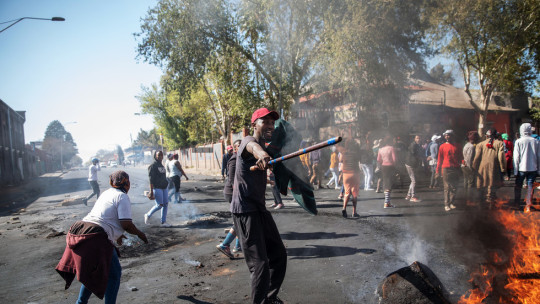
S. Africa descends into chaos amid widespread riots, looting & violence against foreigners
Police have used tear gas, stun grenades and rubber bullets to try and quell an ongoing outbreak of violence, rioting and looting across South Africa. So far, over 90 people have been arrested.
Rioters looted shops, created flaming barricades on roads and engaged in street fights with police, as attacks on immigrants and foreign-owned businesses increase. Some 50 businesses were looted and damaged on Sunday alone. It’s the second outbreak of such violence in the country in the space of a week.
David Tembe, Chief of the Johannesburg Metro Police Department (JMPD) urged motorists to exercise extreme caution on the highways and to avoid the Maritzburg street area entirely.
“We've stabilised the situation and arrested a few dozen people already,” Johannesburg police spokesman Wayne Minaar said.
“We can’t confirm the final figure right now but they will be charged for public violence ... There’s also a charge of attempted murder being investigated.”
The wave of violence began last week in Pretoria, the country’s administrative capital, reportedly after a taxi driver was shot dead by a presumed drug dealer, who was a foreign national.
Some reports indicate that the current riots began after a fire in a building that killed three residents while others speculate that, with unemployment close to 30 percent, the general population is becoming increasingly desperate.
The unrest comes amid a backdrop of escalating tensions between authorities and foreign nationals over widespread efforts to shut down illegally operated businesses, including taxis and commercial trucking.
Truck and bus drivers have been warned by the International Cross-Border Traders Association that they may be targeted in attacks, as the situation continues to deteriorate.
Meanwhile the Zambian Ministry of Transport and Communications has issued a directive instructing Zambian truck and bus drivers to park their vehicles and avoid traveling to or through South Africa while the current wave of violence continues.
The continuing spate of xenophobic violence has been widely condemned by politicians and human rights organisations.
The Nigerian Minister for Foreign Affairs Geoffrey Onyeama described the situation as “sickening and depressing” while also decrying “ineffective police protection.”
Police Minister Bheki Cele declared the Johannesburg looting as a national emergency.
Read the full article
0 notes
Text
American Navy not yet ready for WWIII...maybe in a decade or two.
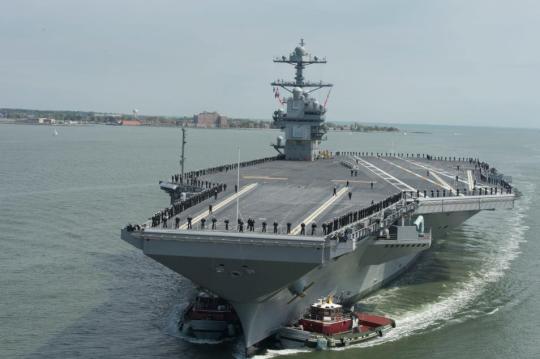
The US Navy’s new $13 billion aircraft carrier was delivered with only two of its 11 elevators –vital to get munitions to its deck– operational. For the Navy, it’s the latest in a series of costly embarrassments.
The USS Gerald R. Ford is the first of the Navy’s new Ford-class aircraft carriers, a hulking, 100,000-ton beast built to replace the aging fleet of Nimitz-class vessels. Already 23 percent over budget, it was delivered in 2017 but has yet to undergo so-called ‘shock trials’ to prove its combat readiness.
However, Rep. Elaine Luria (D-Virginia) told Bloomberg this week that nine of the Ford’s weapons elevators are non-operational, and will require costly and time-consuming upgrades to get them working. With the Ford’s crew unable to move ordnance to deck, “the ship can’t deploy,” Luria –who serves on the House Armed Services Committee– said.
Senate Armed Services Chairman Jim Inhofe (R-Oklahoma) also hounded Vice Admiral Michael Gilday, President Donald Trump’s nominee for Chief of Naval Operations, at his confirmation hearing on Wednesday.
“The ship was accepted by the Navy incomplete, nearly two years late, two-and-a-half billion dollars over budget, and 9 of 11 weapons elevators still don’t work, with costs continuing to grow,” Inhofe exclaimed, adding that the Navy’s lack of planning “ought to be criminal.”
Immobile elevators are just one of a litany of problems facing the USS Ford. A Pentagon report published in 2017 revealed that the carrier’s catapults, arresting gear and radar systems are all of “poor or unknown reliability.” The arresting gear –responsible for catching and rapidly slowing a landing jet– is supposed to withstand 16,500 landings before failure. It can handle 19. According to the report, this gives the gear a 0.2 percent chance of surviving a day of sustained combat.
Furthermore, the new ship is not compatible with the US Military’s next-generation F-35 stealth fighter – itself plagued with cost overruns and reliability issues. In fact, with the exception of the Nimitz-class USS Abraham Lincoln, not a single carrier in the US’ 11-strong fleet can deploy with the F-35. Significant upgrades are necessary to ensure compatibility with the new jet, and even Ford-class carriers will need additional work after commissioning if they are to handle the F-35.

FILE PHOTO: The USS Gerald R. Ford seen under construction in 2012 © Reuters / Handout
Why did the Navy accept a carrier that wouldn’t work with its latest fighter jet? The simple answer is budgetary concerns. Spending caps imposed by Congress led the Navy to push the Gerald R. Ford out quickly. Issues like the faulty elevators and F-35 incompatibility could be fixed later, the thinking went. However, Rep. Luria’s committee now wants to repeal these cost caps, and has included language in their version of Congress’ annual defense spending bill prohibiting the delivery of the next Ford-class carrier –the USS John F. Kennedy– until the F-35 issue is resolved.
Scheduled for delivery in 2022, the John F. Kennedy currently faces the same problems as the Gerald R. Ford.
Compounding the snafu is the fact that the Ford has not yet been subjected to ‘shock trials.’ This testing involves detonating underwater explosives near a fully-crewed ship to simulate the forces and stresses of combat. If the trials were to find the Gerald R. Ford lacking, the Kennedy too would be scuppered, and the Navy would be left with two combat-unready ships and a $24 billion bill.
Despite the ambiguity surrounding the Ford-class carriers’ combat effectiveness and cost, one party in the story is likely pleased: manufacturer Huntington Ingalls Industries, a shipbuilding spinoff of defense giant Northrop Grumman. In addition to the Ford and Kennedy, the US Navy has awarded the firm a block contract for the construction of two additional Ford-class carriers. Before the contract was awarded, more than 100 lawmakers wrote a letter to then-Defense Secretary Jim Mattis pushing for the two-carrier deal.
Read the full article
0 notes
Text
5 big defeats for Trump's America


Donald Trump made it a banner promise of his presidency to stop the US being abused as the world’s “piggybank” – but not all foreign powers seem to be cowed into submission by his assertive style of foreign economic policy.
The United States remains the world’s second-biggest exporter after China, but these five cases show that it can’t always get its own way – even among its allies. Is this a consequence of Trump’s personal abrasiveness, a period of painful adjustment before the giant rouses, or perhaps a harbinger that the rest of the world no longer needs America as much as it used to?
No US alternative to Huawei

Washington tried to scare other Western countries into dropping a Chinese telecom giant from supplying 5G network equipment, claiming Beijing could capture any data transferred through Huawei devices “at will.” But both Germany and the UK refused to bar Huawei from participating in tenders, with Berlin publicly rebuking Washington by saying that it has its “own security standards.”
The impact will be massive: the super-fast network will power not just telephones and computers, but likely any piece of sophisticated electronic equipment in your home for years to come.
Did Washington fail because the case made by its officials appeared to be based entirely on evidence-free hypotheses, to follow other red scares of various hues? Or was it because the US has no 5G provider of its own to match up with the might of Huawei, on which countries around the world have become increasingly reliant?
Brussels sets trap for tech giants

The EU led a futile crusade to dismember Microsoft in the 1990s, but the assault on American tech giants by European lawmakers both in Brussels and through national governments is on an entirely different scale.
From trying to regulate Facebook and Twitter’s content monitoring to Amazon’s tax practices to harrying Google for abusing its dominant position and levying a record $5 billion fine, the European Union has set itself up for years in the courtrooms against the American giants’ legal teams.
Ironically, with its hunt for Russian trolls and fake news, the US has done more than any other country to tarnish the image of its own companies, meaning that almost any measure against them, however punitive or unrealizable, will be met with no resistance from the public.
Uber not (always) welcome

If the battle against the EU is a grand strategic campaign, the difficulties faced by US peer-sharing companies like Uber and Airbnb are more akin to a street-by-street city battle, and for every new market they have cracked, a lucrative one wipes out their business at the stroke of a single vote or edict.
Uber is currently locked out from markets as diverse as China, Turkey, and much of the European Union, while new labor regulations elsewhere could lessen its advantage versus traditional cab providers. Meanwhile, Airbnb struggles with push-back in many of the world’s most popular destinations, including Paris, Barcelona, Los Angeles and Japan.
Worst of all, rather than being regarded as innovations that make life easier – which they often do for the end consumer – these unicorn disruptors are increasingly being treated as law-skirting, employee-abusing parasites.
Nord Stream 2 goes ahead
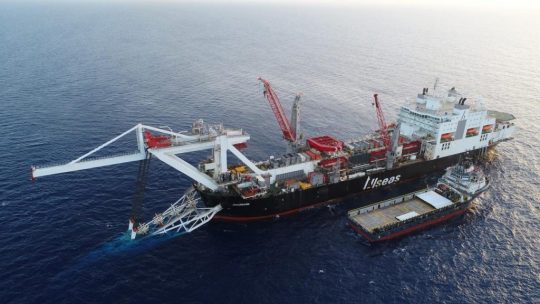
The US is betting on liquefied natural gas (LNG) becoming the world’s top fuel by the end of the next decade. But to propel itself to the top of the new export industry, which requires heavy investment in infrastructure for a product that is not always competitively priced, the US has had to use all of its economic and lobbying prowess.
So every one of the dozens of times Donald Trump – with backing from draconian Senate legislation – has insisted that Germany must abandon its Nord Stream 2 project with Russia, he has not just been fearing the Kremlin’s hold over Berlin, but propping up American LNG exporters. Germany has held firm, preferring to divorce house heating from politics and US interest.
And now a 10 percent tariff imposed by China – which is something of a running theme here – has also resulted in the postponement of the construction of at least one major facility in the US. Washington will argue that this is a hitch on its way to unstoppable domination of a boom industry, but the road ahead for American interests will be full of unexpected obstacles, many of them self-inflicted, others inevitable.
S-400 v F-35

The US, the top global weapons exporter, has long been able to rely on its supplies to military allies as a reliable income stream. Which is why the American suspension of its F-35 supplies to Turkey – in protest against its purchase of Russia’s S-400 missile defense system – provokes concerns that go beyond the monetary.
If more allies – particularly non-NATO states such as Saudi Arabia – drop their cast-iron loyalty to American weapons and look for options that are better value for money, this could force the US government to spend even more money propping up its successful but complacent giants like Lockheed Martin and Boeing (which has other problems of its own recently).
More concerning still is that while NATO countries continue to lag in their defensive spending, the countries where defense budgets are ballooning fastest, China, India and Russia, are either not dependent on American supplies, or actively opposed to them. Whereas 25 years ago it looked like all of the major economies would eventually join America’s world order, it now looks like the other hemisphere is forging its own path.
Read the full article
0 notes
Text
China claims US, UK might be behind HK protests

The Chinese government, for the first time, has explicitly accused the US and UK of being behind the “pro-democracy” protests in Hong Kong, perhaps funding and organizing them through non-profit organizations such as the National Endowment for Democracy. Whether the charge is true is unclear, but the huge amount of money, logistics and organization required to support the protesters would suggest that only foreign governments or wealthy individuals who might profit from them were behind the protests.
There is also a history of US and UK efforts to destabilize China.
For example, a Chinese-language newspaper estimated that during the 2014 “Umbrella Movement” it cost more than HK$200 million (US$25.5 million) just to feed the protesters alone, a sum that many in the territory seemed to suggest the students did not have. Then there was the question of whether the students had the logistical resources and organizational skill to mount the mass protests.
Furthermore, the UK was accused of “setting up” a time bomb for Hong Kong prior to returning it to the mainland in 1997. The last colonial governor, Chris Patten, was labeled a “sinner of a thousand years” by Lu Ping, head of the Hong Kong and Macau Affairs Office of the Chinese State Council, for fomenting democratic parties.
Chinese intelligence was said to have informed Deng Xiaoping that a foreign power instigated the Tienanmen Square “pro-democracy” protests in 1989. Though no proof was ever publicly produced, the student protest leaders were reported to have been promised an education at the most prestigious universities in the US and UK. Whether the student leaders of the Hong Kong protests were promised places at US or UK universities is unclear.
US and UK interests
But what possible reasons are there for the US and UK to spend a lot of money and go through so much trouble to fund and organize protests against the Hong Kong or the Chinese government? What could they possibly gain by disrupting or even destroying Hong Kong’s economy, polity and society?
Indeed, at least on the surface, destabilizing China might hurt American and British economic prospects. China is the United States’ biggest trade partner and source of international students, after all. What’s more, the two economies are intertwined, making decoupling extremely costly to some of America’s largest enterprises. China is America’ factory and market. With regard to the UK, China is increasingly important to its economic well-being in light of Brexit.
The only possible motive is that the US, perhaps with the help of or collusion with the UK, is determined to prevent China for challenging its global supremacy. America has tried every trick under the sun, but failed miserably each time.
Unable to recruit or incite mainland Chinese after the Tienanmen Square protest (the “6/4 Incident,” as China preferred to call it) to do its bidding, a small minority of Hong Kong Chinese appeared eager and willing to help the US and their former colonial master to destabilize or even topple China. In this sense, using some of these people to do the job proved viable.
Another reason might be that the US has not been able to “contain” China through trade. Instead, the trade war is slowing US economic growth, putting farmers on the brink of financial disaster, and increasing poverty and homelessness, just to list a few outcomes.
The US has also failed on the geopolitical and technology fronts. Instead of recruiting allies into its “Indo-Pacific” strategy, it has seen India and Japan seeking rapprochement with China. Even its most staunch ally, Australia, has been balancing its relationship between the “security guarantor” and “economic savior.” Instead of Huawei being put out of business by US policies, the company announced a 30% rise in revenue and has signed 50 5G (fifth-generation wireless) contracts, 28 of which were in Europe, so far this year.
China is being hurt by the trade and technology wars as well as the US, but that might be only short term. For example, exports to the US represent only 4% of the country’s GDP and those products could easily be channeled to the country’s 1.4-billion-strong domestic market and countries participating in its Belt and Road Initiative.
What’s more, the majority of “exports” to the US were American products outsourced to China for assembly or production. When President Donald Trump imposed tariffs on the goods, he was in fact taxing American products, taxes paid by the country’s businesses and consumers.
US foreign policies have further strengthened the Chinese accusations. Democratic and Republican lawmakers may fight like cats and dogs over domestic issues, but they are united on foreign policies, particularly those related to China. The latest is lawmakers from both political parties proposing legislation requiring the US president to seek congressional approval before allowing American technology firms to do business with their Chinese counterparts, Huawei in particular. The purpose of the proposed legislation is clear: Prevent China from surpassing US technological superiority.
In many ways, containing China is a priority over everything else, including economic losses. For example, Republican President Donald Trump and his Democratic predecessor Barack Obama both treated China as a “strategic competitor,” though the two presidents’ manner or approach with which to contain the Asian giant differed. Trump is more direct, labeling China an “existential threat” and establishing the “Indo-Pacific” strategy to curb its rise. Obama applied “soft power” such as lobbying allies into signing the Trans-Pacific Partnership to exclude the “communist” country.
If the Chinese accusation that the US and UK were behind the “pro-democracy” protests is true, they will likely be more intense and violent in the future. The sad part is that the youth of Hong Kong who cannot leave the territory will pay the price. A destabilized Hong Kong would doom their future.
Read the full article
0 notes
Text
PC-induced insanity in the US

By Robert Bridge, American writer and journalist. Former Editor-in-Chief of The Moscow News, he is author of the book, 'Midnight in the American Empire,' released in 2013.
America is faced with the grim prospect of the First Amendment being abolished in the places where it should be most vibrant – the schools and universities. Nothing less than the nation’s survival is at stake.
Judging by the current PC madness now afflicting America, it looks as though Uncle Sam rolled out of bed one morning, stared at his reflection in the mirror and said to himself, “I no longer identify as a normal nation with long-standing values, conservative ideals and a strong moral foundation. Today I identify as an intolerant and self-indulgent narcissist, ready to lash out and silence anyone who disagrees with my worldview.” And then many of the nation’s inhabitants quickly followed suit.
Indeed, America seems to have reached the point in its ‘progressive’ development where those who seem to have literally lost their minds – much like the authority figures in Ken Kesey’s masterful 1962 novel, ‘One Flew Over the Cuckoo’s Nest’ – wish to institutionalize the remainder of the sane population.
That preamble leads us to the greatest insane asylums of them all, the American university. Once the proud home of intellectualism and academic freedom, centres of higher learning now resemble fanatic hotbeds of intolerance and bigotry where an invasive type of poison ivy has overrun the structures, leaving the ivory towers to whither in perpetual darkness. Most people are only too familiar with horror stories of campus censorship where activist-minded students work to prevent guest speakers – sometimes by resorting to outright violence - from airing their ‘controversial’ ideas.
Imagine that. The very cognitive exercise that allows ideas to ripen to perfection through open and free discussion is now deemed too radical for the university! These coddled young imbeciles seem to think that by paying exorbitant tuition fees entitles them to an inoffensive college experience in debate-free comfort zones where they may float for four effortless years in a bubble of self-delusional certainty. Perhaps the next step will be to make failing a class unacceptable because that would hurt too many feelings as well. What is most alarming about this situation is that it is the young and inexperienced – the apprentices who have paid admission to learn – who have laid down the ground rules to their masters. The word pathetic comes to mind.
It is trying times like these when the world of academia could use a heavy dose of George Carlin, the late comedian who once described political correctness as nothing more than “fascism pretending to be manners.” But since Carlin is no longer with us, we will have to settle for some reserved remarks by a couple of staid and brave professors instead.
In March 2017, two prominent academics, Robert P. George and Cornel West, co-wrote a statement in which they decried what they called ‘campus illiberalism,’ reminding students that the purpose of a university education is “truth-seeking, democracy and freedom of thought and expression.” That such a reminder was even necessary speaks volumes about how deplorable the situation has become.
George and West harked back to the teachings of John Stuart Mill (1806-1873), the British philosopher who lectured that since our beliefs may be in error “is a good reason to listen to and honestly consider … points of view that we do not share, and even perspectives that we find shocking or scandalous.” That is essentially what Evelyn Beatrice Hall had in mind when she remarked, in words that would shock many students today, “I disapprove of what you say, but I will defend to the death your right to say it.”
Today, the PC thought thugs are attempting to superimpose their bold designs on humanity without any input from the rest of society. As just two samples, consider the endless questions involving the extremely controversial issue of transgenderism, the debate on which is now considered too radical and disrespectful to the subjects.
The largely unchallenged belief that men can be women, and vice-versa – a view that is rigorously defended in many university Gender Studies programs – has had serious implications in many places, not least of in the world of sport where born males are now competing in events alongside females. This debate also leads to the question over the use of gender-neutral pronouns when addressing people. Despite the fact that such unprecedented issues require the highest level of frank discussion, the trend in the educational system is moving towards greater censorship and control.
This month, for example, lawmakers from New Jersey introduced a motion to remove The Adventures of Huckleberry Finn from its public school curricula so as to avoid “an uncomfortable atmosphere in the classroom.” Again, the message is to shield the student from any disagreeable topics.
As any American knows, this classic piece of literature by Mark Twain presents an unfiltered depiction of the antebellum South, even including liberal usage of the inflammatory n-word. Apart from the question of outright censorship, which is hard to stop once put into motion, it is highly doubtful that sanitizing American classrooms will do anyone any good. In fact, it practically guarantees that Americans will be doomed to repeat history because they are essentially burning the controversial books that allowed such unfortunate moments to be remembered.
Toni Morrison, the prominent African-American novelist, initially had misgivings over Twain's classic work, but later reconciled herself to the belief that the book had valuable lessons to teach. Attempts to ban it, she said, represented a “purist yet elementary kind of censorship designed to appease adults rather than educate children.” Sadly, not everyone views censorship in such an open-minded way.
The aggressive move to purge everything disagreeable from US history is beginning to rear its head in other ways as well, most notably with the systematic removal of Civil War monuments to Confederate leaders who fought against the Union forces. It cannot be emphasized enough that removing statues does not remove the stain of history; it only allows the public to discard history lessons that should never be forgotten (the argument that says history books can substitute for bronze statues in the public square doesn’t hold up to scrutiny when the move towards banning books is already in its latent stages).
So what can be done to stop the slide towards blatant censorship in the public domain, not least of all the university? Well, Donald Trump has an idea, which is an intriguing albeit unfortunate one. The US leader said he would “sign an executive order requiring colleges and universities to support free speech if they want federal research funds.” That makes sense. After all, why should the US government be expected to fund colleges and universities that are refusing to honor the US Constitution?
Although such a move makes for a temporary band-aid, the mortal wound of political correctness that has gravely inflicted the United States, and the rest of the Western world as well, will not heal even for lack of dollars. Thus, the conservatives and the liberals will continue chasing each other, year after year, in a game of fox and rabbit that will eventually lead both to their demise, and with it that of the country too.
Unless the Democrats and Republicans can finally agree that no amount of political correctness or social-justice nonsense should interfere with the 1st Amendment right to free speech, the future health and success of the United States will remain severely in doubt.
And what do people in Japan think about Political Correctness?
Read the full article
0 notes
Text
Airbus, Boeing signing economic suicide pacts with Beijing

By Marshall Auerback, Asia Times.
Airbus is considering whether or not to shift the assembly process of its latest generation of A330 planes to China as part of a bid to increase its market share in the world’s fastest-growing civil-aviation market.
The European multinational is following a trend started by Boeing, which recently opened a new completion plant in China. On the face of it, the decision by the two companies (which dominate the civilian aviation market) makes sense: Build where your biggest customer lives, especially as China does not yet have a fully home-grown civil-aviation industry ready to compete globally.
The benefits are many, including the goodwill and esteem of the country that would be buying these planes. In the long term, however, that might prove to be a costly miscalculation. Based on its recent history (here and here), it won’t take long for China to catch up and largely displace both companies domestically in Beijing’s home aviation market, as well as seizing a large chunk of the corporate duopoly’s global market share. Airbus and Boeing could therefore be making short-term decisions with negative long-term consequences for their future profitability.
Given China’s formidable economic advancement, none of this should come as a surprise to either Airbus or Boeing. Nor should it shock Western governments. The problem is that everybody has historically been guided by the naïve assumption that simply admitting China to organizations such as the World Trade Organization (WTO) would induce Beijing to, in the words of Philip Pan, "eventually bend to what were considered the established rules of modernization: Prosperity would fuel popular demands for political freedom and bring China into the fold of democratic nations. Or the Chinese economy would falter under the weight of authoritarian rule and bureaucratic rot."
China has unquestionably modernized, but its politically illiberal, dirigiste polity has, if anything, massively moved in the opposite direction, strengthened by that very modernization process that has done anything but falter. Furthermore, the country has many aims and goals that are antithetical to the long-term prosperity of Western companies and economies (as the European Union is beginning to recognize).
Boeing and Airbus might simply become the latest Western sacrificial lambs. Beijing has explicitly targeted wide-bodied aircraft as one of its 10 new priority sectors for import substitution in its "Made in China 2025" document, so whatever short-term gains Airbus and Boeing receive in terms of securing additional orders from China could well be undermined longer-term.
The resultant technology transfers and lower labor costs will almost certainly give Beijing a quantum leap toward competing directly and ultimately displacing both companies. Given the merger with McDonnell Douglas, Boeing will continue its march toward in effect becoming a branch of the US Department of Defense, as its civilian market share crashes, but Airbus doesn’t really have the luxury of a military alternative, given the relative paucity of European defense expenditures.
As if Boeing needed any further problems, the 737 fiasco represents the latest in a series of setbacks for the company. Boeing’s 737 global recall, coming on the heels of the initial launch problems of the 787 Dreamliner some six years ago (where the "demoduralization" of production meant that Boeing "could not fully account for stress transmission and loading at the system level," as Gary Pisano and Willy Shih write), together illustrate the dangers of spreading manufacturing too far across the globe: Engineers, notes City University of New York fellow Jon Rynn, "need to ‘kick the tires’ of the new production processes they design. So while a market may be global, production and the growth of production take place most efficiently" in relatively close geographic quarters.
American companies such as Boeing consistently underestimate the value of closely integrating research and development and manufacturing, while underplaying the risks of separating them (as recent events have demonstrated again to the company’s cost). By deciding to expand its A330 production in China, Airbus looks poised to repeat Boeing’s error, a potential miscalculation that most European Union companies have hitherto largely avoided, because the EU has prioritized domestic manufacturing/discouraged offshoring more than its US counterparts (in regard to the loss of US manufacturing jobs attributable to China, the American Economic Review paper by Justin R Pierce and Peter K Schott specifically notes that there was "no similar reaction in the European Union, where policy did not change").
Beijing itself has historically balanced its purchases from both major civil-aviation manufacturers to ensure that it does not rely too heavily on one aircraft supplier, which means that Airbus will likely benefit from the void created by the 737 recall. All the more reason why the European conglomerate should be wary of following the Pied Piper-like expansion into China. (The 737 recall also complicates resolution of the US-China trade conflict, which had appeared closer to resolution in light of Beijing’s proposal to buy an additional US$1.2 trillion in US exports over six years. Boeing aircraft purchases featured heavily on Beijing’s shopping list.)
But the longer-term challenges relate to China’s economic development path and its corresponding move up the high-tech curve, which have largely been characterized by mercantilist policies of protection and heavy government subsidy. In this regard, the Chinese state has followed a national development strategy first outlined in the mid-19th century by German economist Friedrich List, who argued that the national government should play a crucial role in promoting, guiding, and regulating the process of national economic advancement.
Protectionism, List argued, should play a role here as well during the country’s "catch-up" phase of technological development. List wrote the analysis against a historic backdrop where Germany was beginning to challenge the dominant economic power of its time, the United Kingdom. So the defenders of Beijing might well point to his work to show that there is nothing new about using the state as a principal instrument to accelerate economic development and innovation.
However, List was analyzing two capitalist economies operating within the context of a 19th-century gold-standard global financial system, which invariably circumscribed the scope of state involvement (the finite availability of gold reserves limiting fiscal-policy options). By contrast, today the global economy operates under a fiat-currency system, and what therefore distinguishes China’s economic domestic development from its 19th-century predecessors is the sheer scale of fiscal resources it can deploy in the furtherance of its economic (and military) objectives. Some of these objectives might not be so benign to the West longer-term.
Which points to another consideration for the West: For all of its supposed embrace of capitalism, China is still primarily a state-dominated economy, which eschews the disciplines of a free-market economy. This means it has the capacity (and ideological predisposition) to use the national fiscal policy as a loss leader, absorbing losses well beyond what would be tolerated in an economy dominated by private enterprise (private companies, of course, can go bust).
Beijing underwrites its designated national champions by relying on a combination of subsidies (some disguised, as they flow through state-backed investment funds and the financial sectors) and "Buy China" preferences to develop Chinese products, even though these policies are contrary to the rules of WTO membership, which China eagerly joined in 2001. As economist Brad Setser argues, "various parts of the Chinese state compete, absorb losses, and then consolidate around the successful firms. Other countries … worry about the losses," notes Setser, but not the Chinese government, which simply socializes the losses at the national level, and writes them off.
In this regard, Boeing and Airbus would do well to consider China’s experience in the solar industry. Designating this as another strategic sector for growth in the 1990s, Chinese solar companies, with the explicit backstop of the state, ultimately raised enough funding via debt to build sufficient solar capacity for the world three times over. The overinvestment ultimately killed the cash flows of major Western competitors and knocked them out of the business, leaving the market free for China to dominate.
Commenting on the trend, Scientific American highlighted that "between 2008 and 2013, China’s fledgling solar-electric panel industry dropped world prices by 80 percent, a stunning achievement in a fiercely competitive high-tech market. China had leapfrogged from nursing a tiny, rural-oriented solar program in the 1990s to become the globe’s leader in what may soon be the world’s largest renewable energy source."
Here was a classic case of state-guided/supported commercial companies receiving benefits that went far beyond anything in, say, South Korea or Taiwan, or even Japan in the earlier part of their development. Now this trend is manifesting itself across the entire spectrum of the Chinese guided economy, including agricultural equipment, industrial machinery, telecommunications, artificial intelligence, computer chips, and civil aviation.
In another disturbing parallel that Boeing and Airbus would do well to consider, "the timeline of China’s rise began in the late 1990s when Germany, overwhelmed by the domestic response to a government incentive program to promote rooftop solar panels, provided the capital, technology and experts to lure China into making solar panels to meet the German demand," according to Scientific American. Much like the German solar companies, which shipped valuable manufacturing and technological expertise to China, to sustain demand, Boeing and Airbus could well be signing their economic death warrants by agreeing to offshore increasing amounts of production in China to sustain their global market shares (aided and abetted by their more market-oriented governments, which frown on the idea of national industrial policy).
The same thing is happening in wind power in China, which is expected to see offshore wind capacity grow from 2 gigawatts last year to 31GW in the next decade. China’s expansion here has already forced Siemens and Gamesa to merge to cope with the rising competitive challenge.
As far as aviation itself goes, Setser makes the point that "China may cut into the United States’ future exports by building its own competitor to the 737 and also cut into Europe’s future exports if Airbus decides to build the A330 in China and China buys ‘Made in China’ Rolls-Royce engines for the C929 and the A330." Even if this allows the duopoly to maintain its dominance in global civil aviation, it is hard to see how shifting manufacturing production of aircraft components to China to get orders constitutes a "win" for the US or European workers who are already being displaced. And Boeing’s weak-kneed response to the 737 crisis will likely exacerbate the company’s problems going forward.
The bottom line is that both Western governments and Western corporations have persistently underestimated the power of China’s economic development model and the corresponding economic threat that it poses to the West’s own affluence. The usual criticism levelled against the Chinese growth model is that a country that subsidizes its industries ends up with inefficient industries because heavily protected local firms are shielded from global competition, ultimately leaving the country that resorts to protectionism with inferior products.
The idea of national champions, built up via state dirigisme, according to classic liberal economic doctrine, ultimately ensures that economic efficiency and commercial considerations get squeezed out. Rent-seeking and corruption become institutionalized, goes the argument, so these national champions ultimately will not be able to compete in the global marketplace.
That was certainly the assumption of Milton Friedman, who called the Communist Party of China’s state-driven strategy "an open invitation to corruption and inefficiency." By contrast, according to Defense and the National Interest, the governing assumptions of capitalist economies is that "the discipline of the ‘marketplace,’", not the state, is better suited to choose winners and knock out losers "who cannot offer the prices or quality or features of their competitors."
China represents the ultimate repudiation of these seemingly ironclad economic laws. The country’s success has come across a slew of industries: clean tech, notably wind and solar power, Internet companies (despite overwhelming censorship, China has corporate behemoths, such as Alibaba, or Baidu, that rival Google in scale and scope), and more recently, in the telecommunications sector (where Huawei has clearly benefited from "Buy China" preferences created by the state via its state-owned telecommunications enterprises and now is considered to be the global leader in 5G telephony).
In practice, therefore, there is no reason the same model cannot work with regard to civil aviation even as Airbus and Boeing eagerly provide the rope with which they may hang their respective companies in the future.
This article was produced by Economy for All, a project of the Independent Media Institute, which provided it to Asia Times.
Read the full article
0 notes
Text
No place for unorthodox scientists in Political Correct Liberal West

The Western world considers itself a bastion of free thought – a marketplace of ideas. But some scholars who questioned prevailing Political Correct Liberal groupthink have quickly discovered that academic inquiry has tightly-controlled limits.
There are more Democrat than Republican supporters among scientists of almost every academic field in the US, voter registration studies have shown. In fields such as social studies and sociology, conservatives can be outnumbered a dozen or more to one. With such an overwhelming advantage in numbers, one might think that dissenting viewpoints in these fields would not pose a meaningful threat to prevailing orthodoxies. Unfortunately, a number of high-profile cases reveal that scholars and thinkers – some who do not even identify as conservative – risk their careers when they challenge the liberal majority.
Lisa Littman and 'rapid onset gender dysphoria'
Lisa Littman, assistant professor at the Brown University School of Public Health, found herself the target of liberal rage after her research challenged a sacred tenant of LGBTQ dogma. She published a paper which supported the thesis that some young adults who identify as transgender but previously showed no symptoms of gender dysphoria may have been influenced to "transition" by social media, friends and their environment.

The resulting uproar caused the professor endless grief – even after an exhaustive post-publication review of the paper confirmed her key conclusions. She lost her consulting job and some local clinicians even called for her immediate firing from Brown. Ironically, Littman is not a conservative – showing that a liberal worldview won't save you from the outrage mob. In an interview with Quillette, she claimed that she received pushback because her paper "did not support the gender-affirming perspective."
James Watson alleges a link between race and IQ
The scientist who discovered the structure of the DNA molecule, and received a Nobel Prize for his findings in 1962, found himself on the receiving end of social justice wrath in 2007, after suggesting a genetic link between race and IQ.
According to Watson, his unpopular position on the subject quickly transformed him into an "unperson." The ire of the scientific community eventually led to his expulsion from most of his positions and left him bereft of public speaking opportunities for years to come. Stripped of most sources of income, Watson was forced to sell his Nobel Prize medal.
Undeterred, he recently said that he stands by his controversial idea that there's a genetically-backed "difference on the average between blacks and whites on IQ tests."
It was not Watson's only eccentric idea. He believes, for example, in a link between sunlight and libido – and that doesn't devalue his genuine input in genetic research. Nonetheless, his thought crime essentially led to his banishment from the public stage and the scientific community.
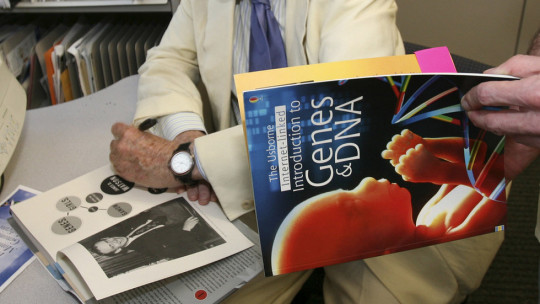
James D. Watson, co-discoverer of the DNA helix and father of the Human Genome Project © REUTERS/Richard Carson
Larry Summers and female aptitude
Former Treasury Secretary Larry Summers, who served two Democratic presidents, found himself ostracized by the left after he gave a short address exploring the reasons why women are underrepresented in tenured positions in science and engineering at elite universities and research institutions.

Larry Summers
Summers ultimately concluded that the phenomenon may be due to a difference in aptitude at the highest levels of scientific work – but admitted his hypothesis was provocative and encouraged the audience to prove him wrong.
Instead of sparking a rigorous academic debate on the subject, Summers was dragged through the mud and labelled an unrepentant sexist. He later stepped down as president of Harvard University – a decision which many attribute to his "sexist" comments.
Although Summers provided economic guidance for the Obama White House, his remarks reportedly cost him the top job at the Treasury Department.
Read the full article
0 notes
Text
The Philippines was right to leave the International Criminal Court
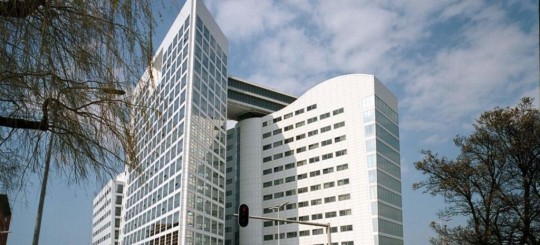
By Dr. David Hoile on manilastandard.net
Three cheers for President Rodrigo Duterte’s decision to withdraw the Philippines from the International Criminal Court (ICC). While controversial, it was clearly the correct thing to have done. The scandal-ridden Court’s reputation has been irretrievably damaged by its corruption, racism, blatant double-standards, serious judicial irregularities and sheer incompetence as a legal body.
The pursuit of justice in the face of wrongdoing—especially crimes against humanity and war crimes – is at the heart of human values and the International Criminal Court was embraced by many when it was established in 2002 for precisely that reason. Many Asians and Africans supported establishing the ICC, believing that it would be a court that would dispense justice without fear or favour. The ICC has spent the past 18 years, however, revealing itself to be a deeply-flawed, politicized and professionally inept institution that has badly eroded whatever faith there may have been in the concept of international criminal justice.
The reality is that the self-styled International Criminal Court is neither international nor a real court. Even avid fans of the ICC warned of “serious flaws”, “ambiguities and dilemmas” and “fault lines” in its creation. While it claims to be the world’s court this is not the case. Its members represent just over one-quarter of the world’s population: Pivotal states such as China, Russia, the United States and India are just some of the many countries that have remained outside of the Court’s jurisdiction. Almost all of the BRICS nations are not members.
A real court is only as credible as its independence. Far from being independent and impartial, the ICC’s own statute grants special prosecutorial rights of referral and deferral to the world’s most politicised body, the UN Security Council—and by default to its five permanent members (three of which are not even ICC members). Political interference in the legal process was thus made part of the Court from its inception. The Court is also inextricably tied to the European Union which provides up to 70 percent of its funding. The online ICC watchdog @ICCWatch has described the ICC as a “very well funded European NGO masquerading as a ‘court’”. The EU is additionally guilty of blatant political and economic blackmail in tying aid for developing countries to ICC membership. The expression “he who pays the piper calls the tune” could not be more appropriate.
Given its budget is dependent upon European states, the ICC has ignored any alleged human rights abuses by its European or NATO state funders or human rights abuses by western client states. The ICC has been made aware of 1.17 million alleged war crimes in ICC Afghanistan. Any alleged war crimes, regardless of who committed them, can be pursued as Afghanistan is an ICC member state. Despite a 10-year “investigation” of these allegations, the ICC has so far declined to act. It has chosen instead to focus almost exclusively on Africa and Africans. The ICC is self-evidently a racist court. From over 11,000 complaints about alleged crimes in over 139 countries on several continents, the ICC has only ever “indicted” Africans. If the American or British or Filipino legal system chose only to arrest and try black people, while ignoring crimes by any other racial group—as the ICC has done—it would be quite rightly be seen as racist.
Putting the ICC’s racism and selectivity aside, the ICC has also proved itself manifestly unfit for purpose as a legal institution. Its proceedings thus far have often been questionable where not simply farcical. Its judges—some of whom have never been lawyers, let alone judges—are the result of corrupt FIFA-esque vote-trading amongst member states. Far from securing the best legal minds in the world, this produces mediocrity. Some “judges” had never set foot in a courtroom before their “appointment”. At least one elected “judge” had neither law degree nor legal experience but her country had contributed handsomely to the ICC budget. Why should the excellent Filipino judicial system be overridden by European “human rights” activists posing as judges?
The Court has produced prosecution witnesses who recanted their testimony the moment they got into the witness box, admitting that they were coached by non-governmental organisations as to what false statements to make. Dozens of other “witnesses” have similarly disavowed their “evidence”. The ICC has had to admit that its star witnesses were “thoroughly unreliable and incredible”. And then there has been crass prosecutorial misconduct, including, for example, the hiding of hundreds of items of exculpatory evidence from the defence, which should have ended any fair trial because they compromised the integrity of any legal process (but didn’t). Simply put, the Court and its prosecutors have been making things up as they go along and getting away with it.
The ICC claims to be “economical” and to bring “swift justice”, yet it has consumed more than two billion Euros resulting in three questionable convictions in trials often lasting several years. Both former President Laurent Gbagbo of the Ivory Coast and former Vice-President Jean-Pierre Bemba of the Democratic Republic of Congo were falsely imprisoned at the ICC for 10 years without evidence to convict before being freed. The ICC claims to be victim-centred yet Human Rights Watch has publicly criticised the ICC’s ambivalence towards victim communities. The ICC claims to be fighting impunity, yet it has granted de jure immunity to the United States and afforded de facto immunity and impunity to NATO member states and several serial abusers of human rights who happen to be friends of the European Union.
The ICC should be seen more as part of the western human-rights industry than a real court. It does not have Asia’s welfare at heart, only the furtherance of Western, and especially European, foreign policy and it's own bureaucratic imperative—to exist, to employ more Europeans and North Americans and where possible to continue to increase its budget—all at the expense of the ideal of justice.
Twenty years ago the United States clearly warned that the ICC might become a travesty of justice open to political influence. One US Supreme Court justice described the ICC as a kangaroo court. All this and much worse has come to pass at the ICC. President Duterte has made the right call.
About the Author: Dr. David Hoile is the director of InternationalJusticeMatters.org. He is the author of Justice Denied: The Reality of the International Criminal Court and The International Criminal Court: Europe’s Guantánamo Bay? (available at www.africaresearchcentre.eu).
Read the full article
0 notes
Text
What Went Wrong With The Boeing 737 MAX 8 ?
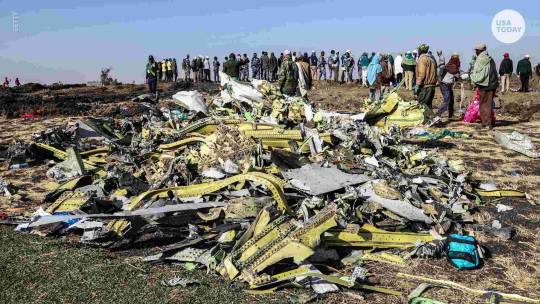
The crash of the 737 MAX 8 jet in Ethiopia has rocked the world and apparently spelled hard times for Boeing. The incident itself – as well as its aftermath – has also raised some questions that need to be answered.
In the wake of the tragedy, the US manufacturer struggles to contain the fallout as more than 40 nations have decided to ground its aircraft following the crash. Meanwhile, an informal consensus is forming around the idea that it is the airliner's flight control software that is highly likely responsible for Sunday's catastrophe.
The media are increasingly reporting about the similarities between the Ethiopian crash and the one that occurred in Indonesia less than six months ago and also involved a 737 MAX 8 model. Some other reports have revealed that pilots flying the troubled series have also repeatedly complained about the planes’ autopilot making it nosedive and lose altitude on several occasions.
Most recently, it was reported that a jet piece found at the Ethiopian crash site indicated that the airliner was set to dive before the catastrophe happened.
The reaction of Boeing, which recently vowed to upgrade its software for the 737 MAX series, also indicates that the jets do have a problem with software. However, as the world tries to figure out what exactly happened there still seems to be more questions than answers.
What has gone wrong?
While it increasingly seems that it is one of the flight control systems known as Maneuvering Characteristics Augmentation System (MCAS) that is the most likely culprit behind both the Ethiopian and the Indonesian incidents, it still remains unclear what exactly caused both crashes.
The system was designed specifically to prevent the new aircraft from stalling and eventually falling, but it seems that it did quite the opposite. The jets were equipped with some new engines, which could possibly prompt the plane to climb too high too soon and eventually stall, independent international affairs and aerospace industry analyst Alessandro Bruno explained.
To avoid this, Boeing has programmed flight control computers to stabilize the aircraft's nose, Bruno told RT. However, due to some malfunction, this somehow forced the aircraft to nosedive under certain circumstances.
The pilots, in turn, were apparently sometimes unable to correct this AI failure due to what is now called an "inadequate and almost criminally insufficient" flight manual, which barely mentioned the new system and only did so on some of the last pages, according to the analyst.
The incident shows the limitations of artificial intelligence in vehicles. Older versions of 737 would have never had such problems because there was nothing wrong mechanically with the airplane, it was an electronic problem, a software problem and the problem of awareness.
Did Boeing know about this issue?
Even if the existence of such a problem was not clear from the very beginning, the first fatal crash involving a 737 MAX in Indonesia should have certainly rung an alarm bell. And it apparently did.
Boeing did issue a warning and a training advisory to all 737 MAX operators, urging them to avoid letting the MCAS send the plane into a nosedive. However, it also clearly hesitated to investigate the matter further and also defended the manual by saying that it describes the MCAS as a "relevant" function.
Why did Boeing let it happen?
If one assumes that the company knew about the problem long ago, then this question really becomes one of the most pressing ones. One possible answer might be that the silence was all about quick profit.
The 737 MAX series was allegedly designed too quickly and rushed into production to let Boeing catch up with its major competitor – Airbus – which has recently developed its own new A320 Neo airliners, Bruno said. However, it also faced another problem – that the pilots had to be re-certified to fly the new models. And, in order to do that, they had to be retrained first.
The need for retraining could have discouraged the airlines from buying the new model and eventually stall its entry into the market, the analyst believes.
"The big problem here was that they actually hid this system in order to bypass flight regulations," he told RT.
What they did in order to get those planes sold quickly is that they decided to hide some of the changes to tell the customers that the new planes are exactly the same as the older ones and do not need pilot re-certification.
As a result, the pilots might have not received proper training to deal with the new system, which was introduced precisely because some flight characteristics of the planes changed due to the new engines. It is yet to be determined if it is the issue of awareness that is at heart of both tragic events, though.
Why did Ethiopia trust France to work with black boxes?
At first glance, it would seem only logical for Ethiopia to let the US aviation experts work with the black boxes of the crashed 737 MAX. After all, Boeing is a US company and they would be expected to be best poised to investigate any issues related to its planes.
Not quite so, Bruno believes. The Ethiopian authorities might have suspected that the US analysts could be biased in favour of the aircraft manufacturer and blame the crash on a pilot error, which is a quite common reason for such incidents. France, which hosts the headquarters of the Boeing competitor Airbus and has quite experienced professionals in this field, might have been viewed as a more neutral option in this case, the analyst believes.
Some aviation specialists familiar with the issue also told RT that the Ethiopians initially addressed the Germans over this issue but were re-directed to France. It might also be simply a matter of convenience or timing as France is geographically closer to Ethiopia than the US.
Why was US last to ground troubled aircraft?
Two fatal incidents involving the 737 MAX in less than six months have certainly unsettled the international community and prompted many nations to ground the troubled series. Boeing's home country was among the last to do so, however.
Such behaviour might have a number of reasons, both economic and political. The US Federal Aviation Administration (FAA) might also be implicated in this mess to a certain extent. After all, it was the FAA that approved the new 737 MAX series, despite all the problems with the MCAS and the flight manuals. It could have understandably been reluctant to admit its failure.
Besides, Boeing is one of the US' major exporters, with civilian aircraft and aircraft engines being at the top of the US exports list. Back in 2018, CNN even called Boeing "the nations’ largest single exporter."
The company is highly likely to face serious troubles, which could range from customers cancelling contracts to even its investors suing the company over keeping them in the dark about the potential problems with the 737 MAX series.
"Its downfall could hit the US economy really big, it could affect stock markets in the US," Bruno said.
Apart from spelling economic trouble, the scandal around Boeing might also harm Washington politically. China is one of the company’s major customers, and its airlines had ordered 180 jets from the 737 MAX family, but less than half of them have been delivered so far. Now, Beijing would have a legitimate reason to review and even cancel these contracts, which could put the US in a bind in trade talks with China.
It would be hard for Washington to exact concessions from Beijing when the fate of its major exporter’s contracts in China is in limbo.
The exact reasons for the Ethiopian crash are yet to be determined, as are the actions of Boeing and all relevant authorities and businesses that might have led to this tragic turn of events. One cannot say if we will ever get to the bottom of it, but it seems pretty clear that Boeing now has a lot of damage control to do to contain the fallout.
And it may well turn out that Boeing has only itself to blame.
Read the full article
0 notes
Text
Sadiq Khan: no police to combat knife crimes, but reassurance patrols around mosques: no problem

Worshippers attend Friday prayers in the Baitul Futuh Mosque, in south-west London © Reuters / Peter Nicholls
Security will be stepped up with an increased police presence around British mosques, in response to the mass shootings at two mosques in Christchurch, New Zealand that left 49 people dead.
UK counter-terrorism chief Neil Basu has issued a statement insisting they are monitoring the “varied threats” Britain faces in light of the mosque killings, which New Zealand Prime Minister Jacinda Ardern has described as a “terrorist attack.”
London Mayor Sadiq Khan took to Twitter to convey his horror at those murdered simply because of their faith. He revealed that an increased number of police, including armed response officers, will be deployed around mosques on Friday, as Londoners go to pray.
Today we will be stepping up reassurance patrols around mosques and increasing engagement with communities of all faiths, giving advice on how people and places can protect themselves.
Heartbreaking news from New Zealand this morning where innocent people have been murdered because of their faith.
London stands with the people of Christchurch in the face of this horrific terror attack. London will always celebrate the diversity that some seek to destroy. pic.twitter.com/QEzYn5IQuN— Sadiq Khan (@SadiqKhan) March 15, 2019
Maybe you remember that this is the same Sadiq Khan who said: "the threat of terror attacks are part and parcel of living in a big city".
The London mayor also maintained that “London will always celebrate the diversity that some seek to destroy.”
New Zealand Police Commissioner Mike Bush has confirmed that the death toll in the Christchurch mosque attacks has risen to 49 people. A male in his 20s has been charged with murder and will appear in court on Saturday.
Bush confirmed that a further 20 people were injured in what is now the worst mass shooting in New Zealand history.
Read the full article
0 notes
Text
New battery to revolutionize energy storage
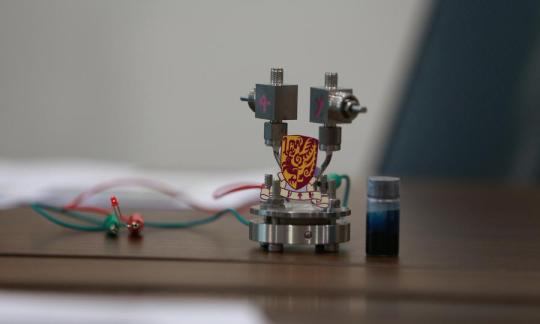
A prototype of the Organic-oxygen battery developed by the Chinese University of Hong Kong. Photo: Handout
Safe, high-density battery developed in Hong Kong is tipped to boost penetration of renewable energy
A safe, high-rate and long-life oxygen battery that exploits a potassium biphenyl complex anode instead of the problematic potassium metal anode has recently been developed by researchers at the Chinese University of Hong Kong.
The technology promises a safe and efficient solution for the storage of renewable energy sources such as solar- and wind-generated power. The breakthrough was recently published in the world-leading scientific journal, Nature Materials, a sister journal of Nature.
Scientists have been searching for a longer-life battery that can pack in more energy more safely than the widely used lithium-ion battery. Offering a higher energy density and lower cost, alkali metal-oxygen batteries represent a promising energy storage solution for multi-scale applications including grid-scale energy storage and solar energy storage suited to powering electric vehicles. However, it comes with serious limitations: poor cycle life, an unstable oxygen electrode and a flammable metal electrode.
In the past four years, Prof Yi-Chun Lu and her team have been studying the origins of the instability of oxygen batteries. Recently, they replaced the problematic potassium metal with an organic biphenyl anode forming a potassium biphenyl complex-oxygen battery, which achieves an unprecedented life of 3,000 cycles with a superior average coulombic efficiency of over 99.84%. Coulombic efficiency is defined as the ratio of the output of charge by a battery to the input of charge.
In addition, the reactions between the organic anode and bulk water or dimethyl sulfoxide proceed moderately without combustion, which makes the battery much safer compared with oxygen batteries based on alkali metals.
Developing reliable renewable energy resources is critical for sustainable development. The new organic-oxygen battery could be widely applied to large-scale electricity storage, small and medium-sized charging stations as well as energy storage modules for renewable energy harvesting systems such as solar panels and wind turbines.
The new battery has a strong potential application in distributed energy storage to enhance the penetration of renewables into the power grid. In addition, the costs of raw materials used to construct the organic-oxygen battery are much lower than the materials used in alkali-metal and lithium-ion batteries, leading to a significant decrease in the cost of energy storage, according to researchers.
Read the full article
0 notes
Text
Investigating America’s influence on German politics

Investigative journalist Jurij Kofner is a German citizen. To question the extent to which his country’s policy decisions are influenced by America’s agenda, he explores Germany’s post-war history to understand how relations with the US were formed. He also looks into the dynamics of the two countries’ cooperation under the umbrella of NATO
Today, America’s largest permanent military operation outside the US is in Germany. The American government uses Ramstein as a base for its controversial drone operations. Local citizens, who question the legitimacy of the arrangement, discover they have no say in what some foreign powers can do in their own country
Read the full article
0 notes
Text
At center of epidemic, Mai Mai attacks Ebola treatment facility

Armed fighters from the Democratic Republic of the Congo’s Mai Mai militia group have attacked an Ebola treatment centre as the country struggles to contain the worst outbreak of the disease in its history.
The attackers stormed the medical facility in Butembo on Saturday, killing a policeman before being repelled by security forces, Reuters reports. The centre was also torched by an unknown group of assailants last week prompting Medecins Sans Frontieres to cease its operations in the area.
Butembo Mayor Sylvain Kanyamanda Mbusa said police officers successfully fought off the militants. “Because of previous attacks, a security system was already in place and attackers were quickly confronted by the police officers guarding the centre,” he said. One of the attackers was wounded during the incident and has been taken into custody.

Mai Mai
Nearly 600 people have been killed in the outbreak in northeastern DR Congo. It’s by far the country’s largest-ever Ebola outbreak and the world’s second biggest Ebola epidemic ever recorded, behind only the West Africa outbreak of 2014-16. Foreign governments have withdrawn diplomatic personnel from DR Congo out of fear for their safety.
Efforts to combat the spread of the disease are being hampered by numerous militia groups operating in the area. The current outbreak is of the Zaire Ebola virus, the most deadly strain and the same one that affected West Africa.
The Mai Mai take their name from the Swahili word for ‘water’ because some of their fighters believe magic can turn bullets into liquid.
Read the full article
0 notes
Text
Case of acute dementia: Greenpeace co-founder Patrick Moore

Greenpeace co-founder Patrick Moore sees the modern environmental movement as a conspiracy theory, calling global warming "the greatest scam in history" and denouncing the use of "fear and guilt" to push the message.
"The climate catastrophe is strictly a fear campaign – well, fear and guilt," Moore told Breitbart radio host Rebecca Mansour. "You’re afraid you’re killing your children because you’re driving them in your SUV and emitting carbon dioxide into the atmosphere and you feel guilty for doing that. There’s no stronger motivation than those two."
This abomination that is occurring today in the climate issue is the biggest threat to the enlightenment that has occurred since Galileo.
"Nothing else comes close," Moore insisted, likening the contemporary environmental movement to "a toxic mix of ideology, of politics and religion."
"CO2 is the food for life! It’s not pollution," the would-be heretic declared, claiming that the use of fossil fuels had actually "saved life from an early demise" because CO2 had been declining since the last ice age, with barely enough for the earth’s plant life to sustain itself, until humanity stepped into the breach during the Industrial Revolution.

Vegetation is growing abundantly thanks to the excess of CO2 in the atmosphere.
Moore, who founded the pioneering environmental activist group almost 50 years ago to protest nuclear war, met with an outpouring of support from conservatives and weary Democrats alike, after tweeting a scathing rebuke earlier this week to Alexandria Ocasio-Cortez, whose quixotic Green New Deal has become the standard-bearer of the 21st-century environmental movement. He continued along those lines, criticizing the anti-climate-change movement for "co-opting and corrupting" politicians and allowing the environment to be treated as a political football without understanding the meaning behind the rhetoric.
Democrats "might as well have signed a suicide pact," Moore said. "Not just for their political future, but for the future of the economy of the US, for all these people to be piling on the Green New Deal, which is a complete and utter ridiculous document."

Coral Reefs Bleaching due to excess CO2 dissolved in the Oceans, causing acidification
But Moore reserved his harshest words for the Sunrise Movement he believes is backing Ocasio-Cortez.
They’re brainwashing these children into thinking the world is coming to an end in 10 years. There’s got to be billionaires behind this. I want to know who they are. I think we need to hunt them down.

More frequent and more disastrous wildfires are caused by climate change.
One can only wonder who's paying him for this nonsense. Maybe he's running for president? Anyway, a good asylum is what he needs at this moment.
Read the full article
0 notes
Text
Hypocritical Simpsons producer pulls Michael Jackson episode after ‘Leaving Neverland’ doc backlash
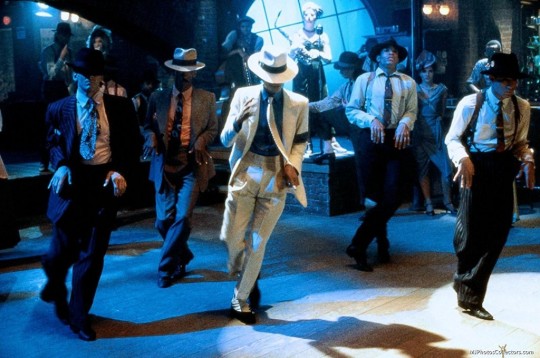
Producers of The Simpsons cartoon series are pulling an episode featuring Michael Jackson following renewed allegations of child abuse in a new documentary. Reaction has been mixed, with many accusing the show of hypocrisy.
HBO’s new documentary ‘Leaving Neverland,’ contains a slew of allegations of child sexual abuse against pop icon Michael Jackson, made by his accusers Wade Robson and James Safechuck.
In the 1991 Simpsons episode ‘Stark Raving Dad,’ Homer meets a man named Leon Kompowsky who believes he is Michael Jackson.
Kompowsky befriends Homer’s son Bart and even sings a once-popular birthday song for Lisa.
Executive producers of the long-running animated series have decided to remove the episode, which features the voice of the pop star, from syndication and streaming services in the US.
The news follows decisions by radio stations across the globe to remove the star’s music from their playlists.
"The guys I work with – where we spend our lives arguing over jokes – were of one mind on this," Simpsons producer James L. Brooks told the Wall Street Journal, adding that it "feels clearly the only choice to make."
Online reaction to the news was mixed, with some saying it was the right move to make, others accusing Brooks of blatant hypocrisy, as the show has featured many controversial figures over the years, including Bill Cosby and Charles Manson.

The "Leaving Neverland" documentary rigorously details allegations of child abuse made against Michael Jackson and has reignited the decades-old controversy surrounding the musical icon – but the #MeToo era has already given its verdict.
When police began investigating Jackson over accusations of child molestation in 1993, the world quickly divided into two equally resolute camps; those who defended the superstar and those who believed the accusers.
This time, however, we are in the #MeToo era. While Jackson’s family has vigorously denied the claims made by Wade Robson and James Safechuck in the documentary and is suing HBO, which produced it, for $100 million, the backlash has been instant.
A museum in Britain has removed a statue of Jackson. Op-eds are appearing by fans who once were more convinced of Jackson’s innocence but who have since changed their minds. Oprah Winfrey has taken heat from Jackson superfans for her support of Robson and Safechuck. Radio stations in Canada, Australia and New Zealand have even been banning Jackson’s music.
To ban or not to ban?
The question of pulling Jackson’s music from radio stations in light of the documentary is a heated one. "The thrill is gone," one headline reads. "We'll never listen to Michael Jackson the same way again," another says. Event DJs are torn about whether or not to stop playing Jackson songs at weddings. Should unproven allegations destroy the legacy of a man regarded as a musical genius? Even if the allegations could be proven, is banning the music the right decision?
For many Political Correct ones, the answer is a clear-cut "yes" to banishing the music from the airwaves, but for others, it’s not just a simple question of right and wrong, but more a philosophical one.
"I really have a huge issue with curtailing access to art and to things that have been created by somebody in the past, by somebody who is dead and who cannot do anything about it," film director Ramon J. Goni told RT.
"When you look at a Picasso painting or you read a Hemingway book or even look at a statue that was created during the Renaissance period when the Catholic Church was torturing and killing people in the name of God," Goni asked, is not possible to separate the flawed human being from the art that was created "at their best moments"?

marni halasa
But political activist Marni Halasa disagrees, said that "if listeners of these radio stations are calling up and saying you know what, this is criminal behavior that R. Kelly and Michael Jackson have actually engaged in and we're not okay with that, I think that's perfectly fine."
To believe or not?
Goni and Halasa also disagreed on how convincing the new documentary actually is. While Halasa believes Robson and Safechuck’s accounts of abuse are "irrefutable," Goni said that judgements were being made without real evidence.
"It’s a scary area if we all are judging for ourselves with very limited facts, with facts that we don't quite cross-examine with actual evidence other than interviews and documentaries that are biased," he said.
People across the world are equally convinced on both sides. Jackson superfans believe Robson and Safechuck are just looking for money. They claim there are inconsistencies in the men’s stories and have blasted the documentary as one-sided.

© Reuters / Leonhard Foeger
They point to Macaulay Culkin, who also had a close relationship with Jackson as a child, and who says he was never abused (suggesting that since Culkin already had money and fame, he didn’t need to ‘fabricate’ abuse allegations). They also point to Brett Barnes, another man who knew Jackson in the 90s as a child and denied abuse took place. Director Dan Reed did not approach Culkin or Barnes for the documentary.
Many are equally convinced Jackson did commit the crimes and find the emotional accounts of abuse presented in the documentary too convincing, compelling and detailed to deny. "If Michael Jackson were alive, I'm confident a jury would find him guilty," a barrister writes in the UK Telegraph.
Those who believe in Jackson’s guilt also point to Culkin’s case, saying that an abuser would likely target children with less power – and that this is why Culkin was never a victim. They say Jackson was a master manipulator who groomed both the boys and their families into thinking sleeping in his bedroom was normal and they question the Peter Pan persona of the damaged, eternal child that Jackson portrayed.
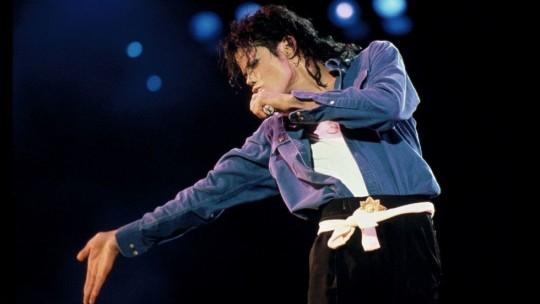
From social to mainstream media
While the debate rages online between vehement supporters of Jackson and adamant believers of his accusers, mainstream media has almost 100 percent come down on the side of the accusers this time around. The certainty of the media can likely be explained by the #MeToo culture which says all accusers must instantly be believed for the greater good and which leaves no room for any defence of the accused.
Jackson’s legacy has been attacked as though there is no doubt whatsoever about the allegations made against him at a time when he has no ability to defend himself. Some in the media have even done away with all pretence of ‘innocent unless proven guilty’ and simply refer to Robson and Safechuck as"survivors" of abuse rather than "accusers," despite the fact that there is no surefire way to prove the authenticity of their accounts, however harrowing they may be.
Piers Morgan appears to be one of the only media figures who has vigorously questioned Reed on the accusations made in the documentary. Aside from that interview, critical analysis of the documentary has been almost entirely missing in the media, in favour of swift condemnation of Jackson.
So was Jackson just a troubled man whose childhood was stolen by an abusive father and who struggled to relive a better version of it in adulthood? Or did his troubled past really lead him to commit terrible acts of child abuse? The #MeToo epoch has delivered its own verdict: guilty as accused, no proof necessary.
If you want to enjoy Michael Jackson before Youtube decides to ban him too, here's a link:
Omg, there are certainly a lot of snowflakes who will be offended by this clip...
Read the full article
0 notes
Text
America’s long-held lease on Diego Garcia may eventually come to an end

Legal storm clouds gather over Diego Garcia
By Bertil Lintner, Chiang Mai on Asia Times.
Recent skirmishes between India and Pakistan in Kashmir have brought the two nuclear-powered nations closer to conflict than any time in recent memory.
The Islamic State of Iraq and Syria (ISIS) is losing its last patches of territory in Syria, which likely means its remaining fighters will spread out across the Middle East and beyond.
Sino-Indian rivalries in the Maldives and other South Asian states is heating up as China projects power in the Indian Ocean region in unprecedented ways. Peace is elusive as ever in war-torn Afghanistan.
All of these regional hotspots have one thing in common for the United States: Diego Garcia.
The US coordinates most of its military operations in the Middle East and Afghanistan from the sub-equatorial atoll. It also uses Diego Garcia to monitor strategically important sea lanes between Asia, Africa and Europe.
But that remote and strategic outpost could face an unanticipated threat if a recent International Court of Justice (ICJ) advisory opinion eventually leads to a legally binding ruling.
The ICJ said in late February that the UK’s expulsion of people on the then Chagos Islands, including Diego Garcia, contravened international law and recommended that the UK “end its administration of the as rapidly as possible.”

The Chagos Archipelago, now known as British Indian Ocean Territory (BIOT), is the UK’s last possession east of Suez. It was separated from the British colony of Mauritius in 1965, three years before the island nation became independent.
Between 1967 and 1973, the BIOT’s entire population of between 1,500 and 2,000 people, mostly a Creole-speaking mix of Indians and Africans who survived by growing coconuts and collecting guano, was deported to Mauritius or Seychelles, both situated more than 1,000 miles away.
US military personnel arrived on the main atoll of Diego Garcia in March 1971, bringing with them earth-moving gear, building materials and workers, of whom many were Filipinos, to build a military base which is now among its most important worldwide.
In 1966, the UK and US signed an agreement known as the “Availability of Certain Indian Ocean Islands for Defense Purposes” that did not specify the nature of activities that would be conducted on the islands.
According to David Vine, an American academic, the agreement was signed “under the cover of darkness” without congressional or parliamentary oversight.
It soon became clear, however, what the agreement was all about. Diego Garcia surrounds a lagoon that is 24 kilometres long, 6.4 kilometres wide and nearly ten meters deep. With some dredging and digging, a deep-water harbour was built.

US military planes parked at Diego Garcia military base, December 2017. Photo: Facebook
Modern houses connected by paved roads were built next on the atoll, as was a runway long enough for huge military aircraft to land. Diego Garcia quickly began to resemble other foreign US military bases, though without a potentially restive local population nearby.
The choice of Diego Garcia was in line with a US policy known at the time as the “Strategic Islands Concept”, which aimed to establish military bases away from populous mainland areas where they could be exposed to anti-Western local opposition.
It was later revealed that the UK had agreed in 1966 to lease Diego Garcia to the US for 50 years. That agreement expired in 2016, but the UK opted to grant the US a further 20-year lease for Diego Garcia. There are between 3,000 to 5,000 soldiers and civilians based there at any given time.
While Diego Garcia is smaller than America’s bases in South Korea, Japan and Germany, its strategic importance is likely greater due to its location to key regional hotspots and China’s rising forays into the Indian Ocean region.
No outsiders are allowed to enter the base, which reports indicate resembles an American suburb, with well-stocked supermarkets, hamburger joints, beer bars, tennis courts, jogging tracks and satellite TV.
Diego Garcia earned notoriety during President George W Bush’s so-called “war on terror” when it was revealed as one of the “black sites” where terror suspects, including from Afghanistan, were detained and interrogated.
The Qatar-based news organization Al-Jazeera reported that Diego Garcia had in 2002 and 2003 been used for what was euphemistically called “extraordinary rendition”, or the transfer of detainees without legal process, with the full cooperation of British authorities. Reports of torture of detainees on Diego Garcia also later emerged.
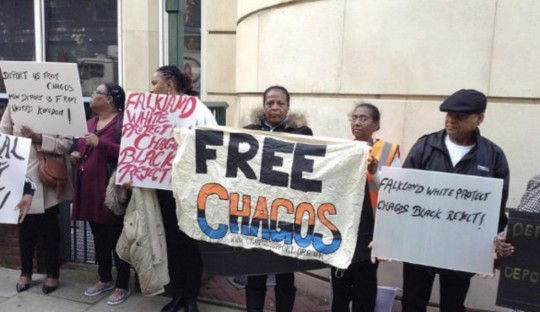
Protesters calling for the return of the Chagos Archipelago back to Mauritius. Photo: Facebook
But a problem unforeseen in the 1960s has cropped up from the people who were forcibly expelled from the islands and resettled in Mauritius and Seychelles. While they were given monetary compensation at the time, many are fighting for their right to return home.
The Chagossians, now numbering about 6,000 including descendants of the original inhabitants, have won the sympathy and support of global human rights groups, with some now providing legal assistance to raise the issue in international courts and fora.
The Chagossians’ cause has evolved into a major international issue involving British courts, the United Nations, the European Court of Human Rights and the Permanent Court of Arbitration at The Hague, among others.
Mauritian politicians have also started to grandstand on how their predecessors were forced to give up the Chagos Archipelago, in what some now view as the UK using political blackmail to win control of the islands.
Information revealed in the ICJ’s advisory opinion revealed that the British told local leaders that they would not be allowed independence if they did not agree to cede the Chagos Archipelago.
In June 2017, the UN General Assembly voted 94 to 15 with 65 abstentions to ask the ICJ to issue an “advisory opinion” on whether the UK had lawfully adhered to the decolonization process when it separated the Chagos Archipelago from Mauritius.
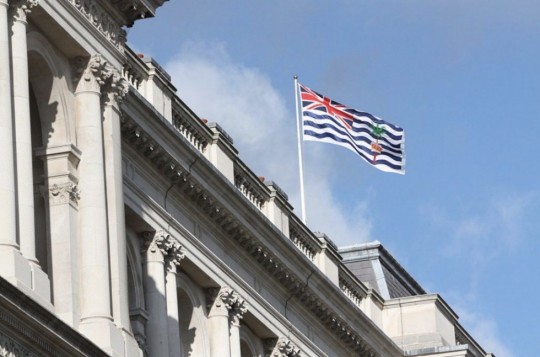
A British Indian Ocean Territory flag flies on the Foreign Office building in London, November 8, 2012. Photo: Wikimedia Commons/Flickr
The opinion announced on February 25, is non-binding but urges the UK to give up the BIOT, which, in effect, would mean returning the islands to Mauritius. It seems likely that the aggrieved Chagossians will press their case further, though the ICJ has not released a timetable for legal procedures.
The British Foreign Office said it would “carefully” look at the ICJ’s advisory opinion while noting that it is “not legally binding. It noted that the defence facilities maintained their “help to protect people here in Britain and around the world from terrorist threats, organized crime and piracy.”
The ICJ’s judges said as part of their advisory opinion that all UN member states, including the US, are obliged to “cooperate to complete the decolonization of Mauritius.”
It’s not entirely clear how that may play out. Mauritius Defense Minister Anerood Jugnauth said at a hearing last year that his country “recognizes existence and has repeatedly made it clear to the United States and the administering power that it accepts the future of the base.”
While such assurances may have been welcomed in Washington, the US would no doubt prefer to maintain its prevailing tried and trusted arrangement with the UK on its remote and isolated base.
Read the full article
0 notes
Text
European Union, just a puppet on a US string

The governments of the European Union member states have ‘unanimously’ rejected a blacklist of countries that have failed to tackle money laundering and terrorist financing. The paper cited four US territories and was slammed by Washington.
The Council of the European Union has "unanimously decided to reject" the list of "high-risk third countries" – a paper that would require banks and financial institutions operating in Europe to "be more vigilant and to carry out extra checks in the context of transactions" involving these nations.
The document in question was drafted by the European Commission and was supposed to identify the nations that "have strategic deficiencies in their anti-money laundering and terrorist financing regimes," which could thus pose "significant threats" to the bloc’s financial system.
Surprisingly, as many as four US territories - American Samoa, Guam, Puerto Rico, and the US Virgin Islands – found themselves on the list. They were put there alongside about two dozen –mostly Asian and African– nations, including those suffering from acute political and economic turmoil as well as armed conflicts, such as Syria, Yemen or Libya.
A 35-page report accompanying the draft list accused the named US territories of having, among other issues, lax tax evasion legislation and a lack of legally binding control measures, that would allow identification of the end beneficiaries of various financial transactions. "Large portion of high-risk sectors … are unregulated," the report said, listing the four US territories among the 11 nations that have particularly grave "strategic deficiencies."
This development infuriated Washington. The US Treasury rushed to issue a damning statement the same day the draft list was published by the European Commission. The statement accused the EU of being superficial in its assessment and complained that the European authorities had "failed" to provide the US with "any meaningful opportunity to challenge their inclusion" or to "discuss with the European Commission its basis for including the listed US territories."
Washington then stated that it flat-out rejects the conclusions of the European Commission and "does not expect" any US financial institutions to take this document into account in their policies and procedures.
In a bizarre coincidence, weeks later, the Council of the European Union, which consists of the ministers representing all 28 EU members, justified its decision to reject the document with the arguments that seemed strikingly similar to those employed by the US Treasury.
The Council "cannot support the current proposal that was not established in a transparent and resilient process that actively incentivizes affected countries to take decisive action while also respecting their right to be heard," its statement said. It also demanded that the European Commission draft a new list that would address these concerns, apparently implying that it should first discuss the situation with all affected parties before adding them to the list – precisely what Washington wanted.
In a separate development, the Council had also previously dismissed the Commission’s proposal to place Saudi Arabia on the ‘blacklist’, claiming that deficiencies within Riyadh’s anti-money laundering and terrorist financing regime were "not established in a transparent and credible process."
The decision to remove Washington’s major Middle Eastern ally from the list also came after the Saudis explicitly voiced their opposition to the move, arguing that it could "create difficulties in trade and investment flows between the Kingdom and the European Union."
Read the full article
0 notes